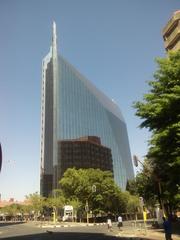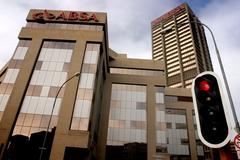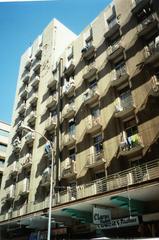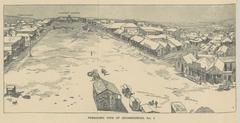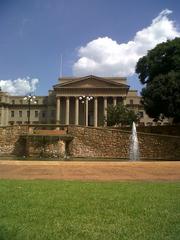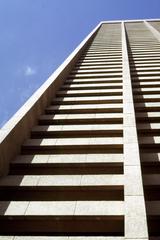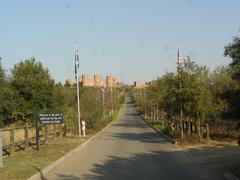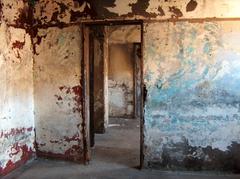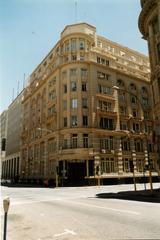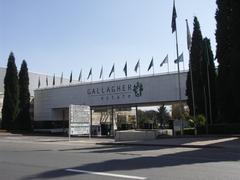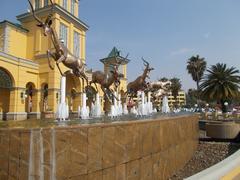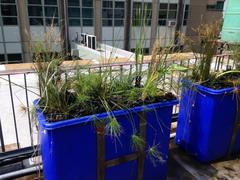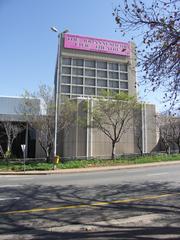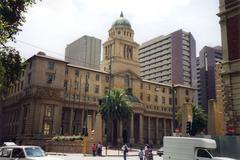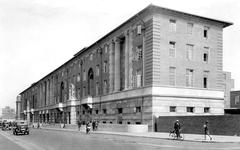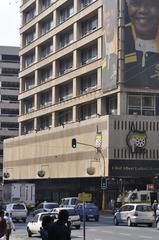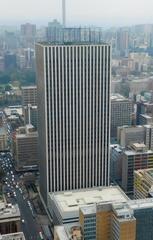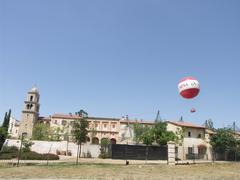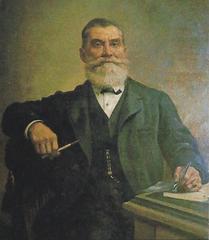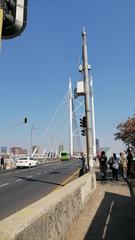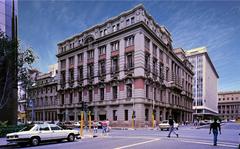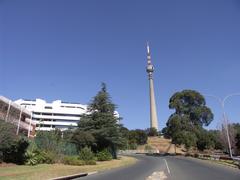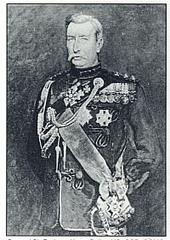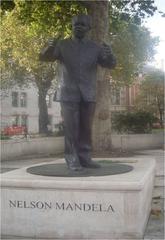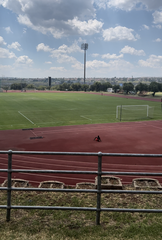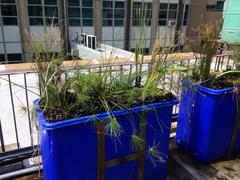James Hall Transport Museum: Visiting Hours, Tickets, and Guide to Johannesburg Historical Sites
Date: 15/06/2025
Introduction
The James Hall Transport Museum, located in La Rochelle, Johannesburg, stands as South Africa’s largest and most comprehensive land transport museum. Established in 1964 through the collaboration of James Hall—a dedicated preservationist—and the City of Johannesburg, this museum is a vital custodian of nearly two centuries of transport evolution. Visitors of all ages can experience an engaging, informative journey that reflects the technological, social, and economic changes that have shaped Johannesburg and the broader South African landscape (James Hall Transport Museum, South African History Online, Gauteng Tourism Authority).
Table of Contents
- Introduction
- Origins and Establishment
- Historical Context and Collection
- Heritage Significance
- Museum Architecture and Grounds
- Visiting Hours, Tickets & Admission
- Accessibility and Visitor Amenities
- Special Events and Educational Programs
- Highlights of the Collection
- Preservation and Restoration
- Role in Johannesburg’s Identity
- Frequently Asked Questions (FAQ)
- Nearby Attractions
- Tips for Your Visit
- Conclusion
- References
Origins and Establishment
Founded in 1964, the James Hall Transport Museum was the vision of James Hall and the City of Johannesburg. Hall’s passion for collecting and restoring transport artifacts, coupled with municipal support, led to the creation of a public institution dedicated to preserving South Africa’s transport heritage for future generations (Joburg City Parks). Since its official opening, the museum has expanded its collection and influence, becoming an essential educational and cultural resource for the city and country.
Historical Context and Collection
The museum was established during a wave of rapid urbanization in Johannesburg, a time when many historic transport modes were fading from the cityscape. James Hall’s efforts to collect, restore, and display vehicles resulted in a core collection that has since grown through donations, acquisitions, and restoration work. Today, the museum comprises over 400 vehicles and related artifacts, ranging from ox-wagons and penny-farthings to fire engines and vintage buses, offering a chronological showcase of South Africa’s transport history (South African History Online).
Heritage Significance
More than a display of vehicles, the James Hall Transport Museum serves as a living archive of South African technological and social history. Exhibits such as the ox-wagons, fundamental to the 19th-century Great Trek, and the city’s first electric tram, introduced in 1906, illustrate pivotal points in the country’s development (South African History Online – Great Trek). The museum’s collection also highlights the transformation of Johannesburg from a mining camp into a major metropolis, reflecting broader patterns of urbanization and modernization.
Museum Architecture and Grounds
Located in La Rochelle’s Pioneers’ Park, the museum occupies a 4.5-hectare site. The main building, constructed in a functional mid-20th-century style, houses expansive exhibition halls organized by transport type and era. Outdoor areas, a working blacksmith’s forge, and restoration workshops offer visitors opportunities to observe conservation work in action. The grounds are designed to be accessible and family-friendly, with picnic areas and ample parking (Gauteng Tourism Authority).
Visiting Hours, Tickets & Admission
- Location: Pioneers’ Park, Rosettenville Road, La Rochelle, Johannesburg South, 2190
- Standard Visiting Hours:
- Tuesday to Sunday: 9:00 AM – 4:00 PM
- Closed: Mondays and public holidays
- Admission: Free for all visitors; donations are encouraged to support preservation and educational efforts
It is advisable to verify current hours and event schedules on the museum’s official website before your visit.
Accessibility and Visitor Amenities
- Wheelchair Accessibility: Ramps, wide aisles, and accessible restrooms are provided.
- Parking: Free on-site parking for cars and buses.
- Public Transport: Served by local buses, minibus taxis, and ride-hailing services.
- Facilities: Restrooms, picnic areas, and a gift shop offering transport-themed memorabilia.
- Photography: Permitted for personal use.
- Seating: Benches and shaded areas throughout the grounds for visitor comfort.
Staff members are available to assist visitors with special needs.
Special Events and Educational Programs
The museum regularly hosts vintage vehicle rallies, heritage days, and themed exhibitions. Educational programs are aligned with the South African primary school syllabus and include workshops on mechanics, model building, and the history of Johannesburg’s transport. Community outreach and STEM-focused events foster broader engagement with transport heritage.
Guided tours—customizable for individuals, families, and groups—can be arranged in advance to provide deeper insights into the museum’s collection and restoration efforts (James Hall Museum of Transport).
Highlights of the Collection
Animal-Drawn and Early Vehicles
- Ox-wagons and Cape Carts: Central to the Great Trek and trade in the 19th century.
- Mail Coaches and Rickshaws: Essential to the growth of urban and rural transport.
Steam and Motor Vehicles
- Steam Tractors and Wagons: Industrial-era workhorses like “Texas Jack” and the Sentinel steam wagon.
- Vintage Automobiles: Notable examples include the 1900 Clément-Panhard and the 1959 Mayoral Rolls-Royce.
- Buses and Coaches: Operational double-decker buses from major South African cities, a 1952 London RT bus, and a 1958 Guy diesel bus.
Trams, Trolleybuses, and Public Transport
- Johannesburg’s First Horse-Drawn Tram (1891–1902)
- Electric Trams and Trolleybuses: Showcasing the shift to electrified urban transport.
Bicycles and Motorcycles
- Penny-Farthings, Tandems, and Classic Motorcycles: Tracing the evolution of personal mobility from the late 1800s onward.
Fire Engines and Emergency Vehicles
- Historic Firefighting Equipment: Including a 1913 Merryweather Steam Pump and a 1936 Magirus Deutz with a 45-metre ladder.
Interpretive signage and knowledgeable guides bring each artifact’s history to life (Automotive Museum Guide - James Hall Museum).
Preservation and Restoration
Active restoration and conservation are central to the museum’s mission. Skilled craftsmen and volunteers restore vehicles to their original condition in on-site workshops, which visitors can often observe. These efforts are vital for safeguarding rare and unique artifacts and are supported by collaborations with local and international heritage organizations (Heritage Portal).
Role in Johannesburg’s Identity
The James Hall Transport Museum plays a crucial role in preserving and interpreting Johannesburg’s urban and national identity. It provides context for the city’s transformation, celebrates technological achievements, and fosters community pride. The museum is recognized as a national asset by the South African Heritage Resources Agency, contributing to academic research and heritage conservation efforts.
Frequently Asked Questions (FAQ)
Q: What are the museum’s visiting hours?
A: Tuesday to Sunday, 9:00 AM – 4:00 PM; closed Mondays and public holidays.
Q: Is there an entrance fee?
A: Admission is free for all; donations are welcome.
Q: Are guided tours available?
A: Yes, by prior arrangement via the official website or by phone.
Q: Is the museum wheelchair accessible?
A: Yes, with ramps, wide aisles, and accessible restrooms.
Q: Can I take photographs inside?
A: Yes, for personal use. Permission is required for commercial photography.
Q: Are educational programs offered?
A: Yes, for schools and groups, including workshops and interactive sessions.
Nearby Johannesburg Historical Sites
Enhance your visit by exploring these nearby attractions:
- Gold Reef City: A theme park and historic gold mine, 3 km away.
- Apartheid Museum: A world-renowned museum chronicling South Africa’s history.
- Sci-Bono Discovery Centre: An interactive science center in Newtown.
- Johannesburg Botanical Gardens: Scenic gardens with picnic areas.
- Constitution Hill: Historic site and seat of the Constitutional Court.
(Gauteng.net official page, City Sightseeing Johannesburg)
Tips for Your Visit
- Duration: Allocate at least 2–3 hours to explore the museum fully.
- Best Time: Weekday mornings are quieter; special events may attract more visitors.
- Dress: Comfortable walking shoes and weather-appropriate clothing.
- Refreshments: Bring your own snacks for picnic areas; nearby attractions offer dining options.
- Plan Ahead: Check the official website or call ahead for the latest updates on hours and events.
Conclusion
The James Hall Transport Museum is a cornerstone of Johannesburg’s cultural landscape, offering an immersive journey through South Africa’s transport heritage. Its vast and diverse collection, educational programs, and commitment to preservation make it an essential destination for families, history enthusiasts, and tourists alike. Plan your visit to experience this living archive and explore Johannesburg’s rich historical tapestry.
For the latest updates, guided tour bookings, and educational resources, visit the museum’s official website. Enhance your experience with the Audiala app for curated guides, interactive maps, and more.
References and Further Reading
- James Hall Museum of Transport Official Website
- Automotive Museum Guide - James Hall Museum
- Visiting the James Hall Transport Museum in Johannesburg: Hours, Tickets, and Historical Insights, 2025, Joburg City Parks
- Visiting the James Hall Transport Museum in Johannesburg: Hours, Tickets, and Historical Insights, 2025, South African History Online
- Visiting the James Hall Transport Museum in Johannesburg: Hours, Tickets, and Historical Insights, 2025, Gauteng Tourism Authority
- Visiting the James Hall Transport Museum in Johannesburg: Hours, Tickets, and Historical Insights, 2025, South African History Online
- James Hall Museum of Transport Visiting Hours, Tickets & Guide to Johannesburg’s Historic Transport Museum, 2025, Johannesburg Official Tourism
- James Hall Transport Museum Visiting Hours, Tickets & Nearby Johannesburg Historical Sites, 2025, Gauteng.net
- James Hall Transport Museum Visiting Hours, Tickets & Nearby Johannesburg Historical Sites, 2025, City Sightseeing Johannesburg
- Preservation and Restoration Efforts at James Hall Transport Museum, 2025, Heritage Portal
- Role of James Hall Transport Museum in Heritage Conservation, 2025, South African Heritage Resources Agency
Images:
- James Hall Museum of Transport exterior (alt: “James Hall Museum of Transport exterior”)
- Historic ox-wagon on display (alt: “Historic ox-wagon at James Hall Museum of Transport”)
- Vintage vehicles inside the museum (alt: “Vintage vehicles at James Hall Museum”)
For an interactive map, visit the official site or tourism partner pages.
